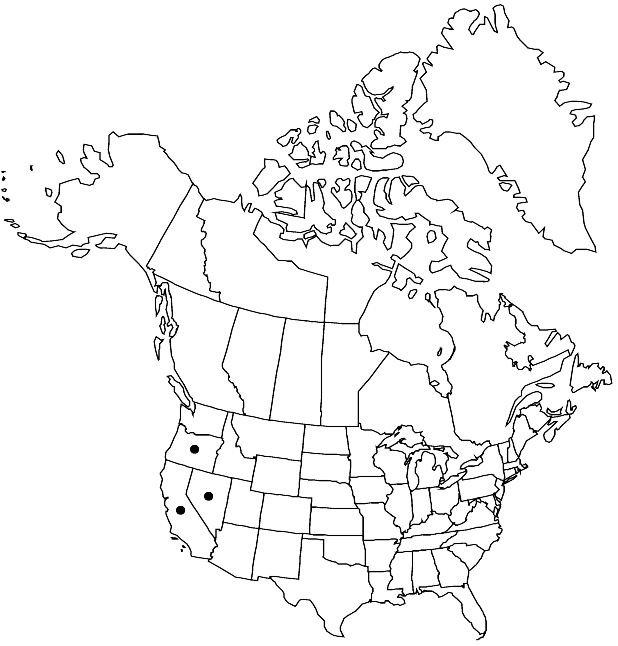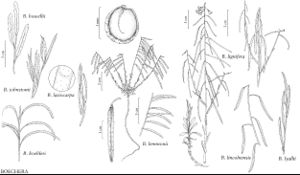Boechera howellii
Harvard Pap. Bot. 11: 69. 2006.
Perennials; long-lived; sexual; caudex usually woody. Stems usually 1 per caudex branch, arising from center of rosette near ground surface, 0.6–2(–3) dm, glabrous throughout. Basal leaves: blade narrowly oblanceolate, 1–7 mm wide, margins entire, ciliate proximally, trichomes (simple mixed with a few short-stalked, 2-rayed ones) 0.1–0.4 mm, surfaces glabrous. Cauline leaves: 2–4, not concealing stem; blade auricles (0–)0.2–1 mm, surfaces of distalmost leaves usually glabrous, rarely ciliate proximally. Racemes 2–5-flowered, unbranched. Fruiting pedicels ascending, straight, 4–10 mm, glabrous. Flowers erect to ascending at anthesis; sepals glabrous; petals white to dark lavender, 4–8 × 1–2.5 mm, glabrous; pollen ellipsoid. Fruits suberect to ascending, usually not appressed to rachis, not secund, straight to curved, edges often somewhat undulate (not parallel), 2.5–6.5 cm × 3–7 mm; valves glabrous; ovules 10–20 per ovary; style 0.05–0.3 mm. Seeds uniseriate, 3–6 × 2–4 mm; wing continuous, 1.3–2.5 mm wide.
Phenology: Flowering Jun–Aug.
Habitat: Rock outcrops, talus slopes and gravelly soil in alpine and subalpine habitats
Elevation: 1800-3800 m
Distribution

Calif., Nev., Oreg.
Discussion
Boechera howellii usually is subsumed under B. platysperma, but the two taxa are distinct (see M. D. Windham and I. A. Al-Shehbaz 2006 for detailed comparison).
Selected References
None.
